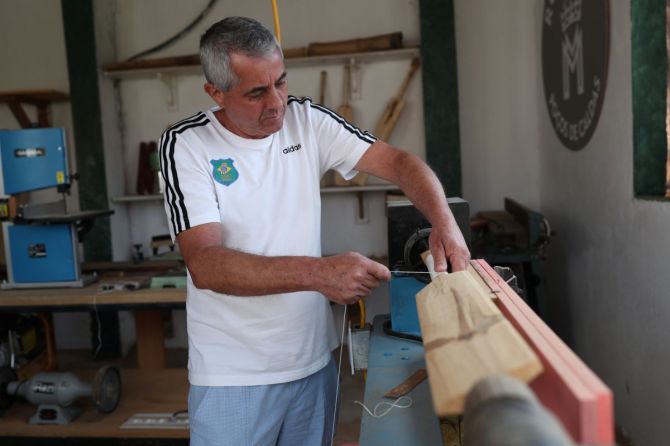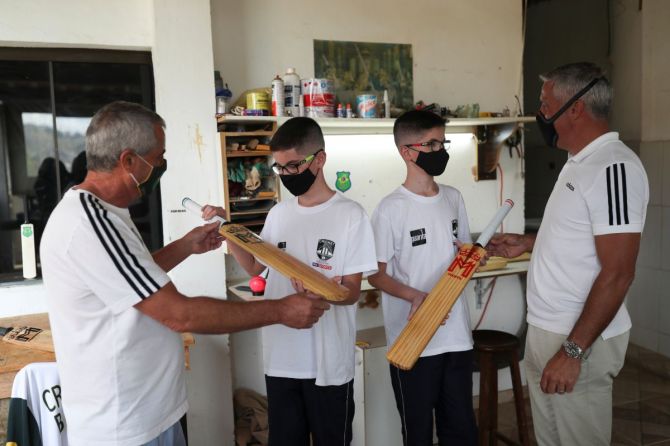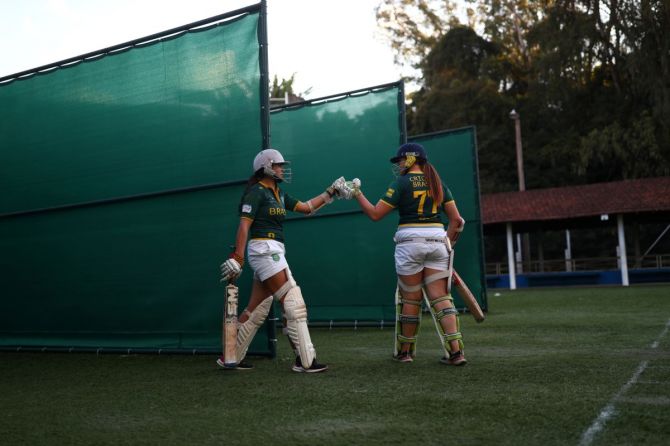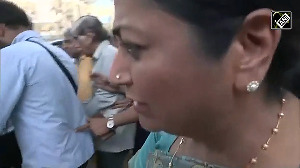
When Brazil's rapidly growing cricket programme threatened to run out of bats, the solution was both simpler and harder than anyone anticipated: make your own.
Matt Featherstone, the former England amateur cricketer who is now president of Cricket Brazil, approached carpenter Luiz Roberto Francisco with a traditional bat made of English willow and asked him if he had the wood or the expertise to make something similar.
Francisco was used to making chairs and cupboards out of MDF and was initially flummoxed.
"I almost gave up lots of times, it's really complicated," he said.
"We need time, lots of patience, there are lots of obstacles, it's the handle, the cut, the wood, the machining. It's not a piece that you put in the lathe and turn it and then it's finished.
"I thought this isn't for me but a few days later I'd be back. It kept me awake at nights but that's how we learn, right? You lose sleep looking for solutions but you know there's a path to the answer and you have to find it."
The answers are now in the hands of young cricketers in Pocos de Caldas, a small city in central Brazil that is the home of Brazilian cricket.

Francisco has turned his workshop into a bat factory, making bats from pine, cedar and eucalyptus and other woods. So far he has produced 80 and expects to ramp up production after the pandemic.
Pocos de Caldas has more than 5,000 young people who are taught cricket in the city's 50 schools, playing mostly T10 and T20 formats.
Since cricket missionary Featherstone moved here 21 years ago, he has convinced the mayor to build two training centres with nets and bowling machines where young kids can learn.
The sport has grown considerably over the last few years – especially among females – and Brazil's women's teams have won four of the last five South American championships.
In the past, generous donations of bats, pads, and balls recycled from the professional game and sent over by the Lord's Taverners, a leading cricketing charity in the UK, kept the Brazilians supplied.
But with more and more youngsters learning about yorkers, square drives and silly mid-offs – not to mention a pandemic that brought transatlantic travel to a halt – a longer-term solution was needed.
"It was fine bringing in 15 or 20 or 30 bats to Brazil for a limited amount of people that play cricket," Featherstone told Reuters.

"Now we've got more than 5,000 young people in the development programme with the idea, as soon as COVID goes, of going to 33,000. That's going to be impossible bringing bats or material for overseas so we have to source it here. So therefore, why not make our own cricket bat factory?"
The imported willow bats will still be used by the top players but the children's and youth teams will increasingly be using Francisco's bats to hone their skills, one of which has become known as "the Brazilian shot," an innovative drive that involves a 270-degree pivot to meet a leg side delivery that has become a Brazilian speciality.
The search, however, is on for a wood that will rival or even surpass English willow and Featherstone is optimistic they will find a sustainable option in Brazil, a nation with more species of tree than anywhere else on the planet.
"They've been using the same wood for these bats for 187 years," he said. "It's not possible that there's nothing else elsewhere. Brazil never played cricket so nobody ever looked. I think we'll find something that is as good as English willow."













 © 2025
© 2025